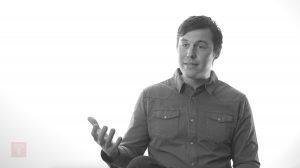Young people, Pornography & Age-verification
AUTHOR(S)
PUBLISHED
2020 in British Board of Film Classification
KEY FINDINGS
- This study found that the majority of kids are exposed to porn by the time they're 13, and that many report feeling that porn has negatively affected them and/or their peers.
ABSTRACT
This research was commissioned by the BBFC to provide context to the current online pornography landscape, as well as explore young people’s interactions with, and attitudes towards, pornography. It will also serve to establish a benchmark against which the impact and effectiveness of any future age-verification regime in the UK can be measured.
The research was designed to qualitatively and quantitatively explore what children and parents think about a range of topics, from the effects of pornography to their... READ FULL ABSTRACT
The research was designed to qualitatively and quantitatively explore what children and parents think about a range of topics, from the effects of pornography to their... READ FULL ABSTRACT
EXCERPTS
- "Many children were first exposed to pornography accidentally and at a young age. Respondents in the qualitative research described having first stumbled across pornography, with some stating that it happened when they were as young as 7 years old. Similarly, just over 6 in 10 (62%) 11- to 13-year-olds who reported having seen pornography in the online survey described their viewing as mostly 'unintentional'. Young people recalled feeling 'grossed out' and 'confused' when they first saw pornography, especially those who had seen it aged 10 or under, while others found it 'funny' or 'weird'."
- "As children got older, they actively sought out pornography, for sexual gratification and to ‘learn’ about sex. Both boys and girls were using pornography for sexual gratification during their teen years. Moreover, young people felt that sex education at school did not adequately prepare them for sex and many were using pornography to learn the specifics of ‘what to do’ during sex. Girls in particular reported watching pornography to meet the perceived sexual expectations of boys, which they believed were in turn informed by the viewing of pornography. Indeed, the online survey showed that 45% of those who watched pornography intentionally had done so, at least in part, to ‘learn’ about sex. Similarly, nearly all lesbian, gay or bisexual (LGB) respondents interviewed in the qualitative work said they had learnt about their sexuality through watching pornography, and several had come to realise their sexuality through watching pornography."
- "There was a disconnect between parents’ perceptions of their children’s pornography viewing practices and the reality of children’s experiences. Three-quarters of parents (75%) felt their child would not have seen pornography online, but among the children of those parents, 53% said they had in fact seen pornography. This figure is likely to be higher in reality due to underreporting in the survey. The qualitative work revealed a particular disconnect in respect of girls, with many parents saying they were sure their daughters would not intentionally seek out pornography. However, the majority of girls interviewed reported they had actively searched for pornography at some stage. Most respondents would usually search for pornography on dedicated pornographic websites. The most popular site for accessing pornography was Pornhub, but other sites such as xHamster, xVideos, or RedTube were also mentioned. It was also very common for respondents to have seen pornography through social media."
- "Most boys and girls across the sample indicated they had seen content they found upsetting or disturbing at some point, usually relating to 'violent' or 'aggressive' pornography. Often, they were first exposed to this type of content accidentally. Some girls in particular spoke of their fear that aggressive depictions of sex would be seen as 'normal' among young male viewers of pornography, and accordingly be copied in real-life sexual encounters. Young people echoed this concern in the online survey: 41% of those who knew about pornography agreed that watching it made 'people less respectful of the opposite sex'."
- "Some felt pornography had affected their expectations and behaviour during sex, particularly in the copying of rough or forceful sex, as well as replicating the noises and positions that they had seen in pornography. 18% of 16- to 17-year-olds who had an active sex life said they had either asked or been asked to incorporate things from pornography into their relations with their partner(s)."
- "The overall attitude towards age-verification was positive. Younger children and parents were particularly positive: 56% of 11- to 13-year-olds in the survey wanted to be “locked-out of websites for 18-plus year olds” and 83% of parents agreed that there should be age-verification controls in place for online pornography."
- "Most children and parents believed that age-verification would delay the age at which young people first see pornography, but would be less likely to prevent older, determined teens from accessing it. Only 14% of 11- to 13-year-olds claimed to be able to do something that would circumvent age-verification compared to 34% of those aged 16 to 17. Many felt that age-verification would have stopped them from accidentally stumbling across explicit content at a young age, such as through uninformed Google searches, pop-ups, and being sent links to pornography sites from friends."



